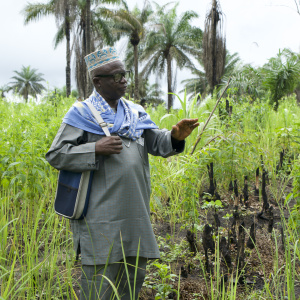
The Sierra Leone government has raised over $600 million to become more food self-sufficient, with rice the main target but currently relies on expensive imports. The government aims to boost production by investing in infrastructure and creating large-scale irrigation. NGOs and farmers argue this will promote agribusiness rather than supporting smallholders.
Summary
As of December 2024, Sierra Leone has been grappling with food insecurity, affecting 83% of its population due to soaring rice prices. The country relies heavily on imports for 35% of its rice, spending $200 million annually. The government, with support from development banks, has initiated a $620 million plan aiming at self-sufficiency by improving infrastructure, creating large irrigated areas, and supporting smallholder farms. However, NGOs and academics caution that this approach may benefit international agribusiness over local farmers, advocating for sustainable farming practices tailored to smallholders.
Reference
Read more here. See also TABLE explainer, what is food security?







Post a new comment »